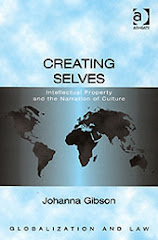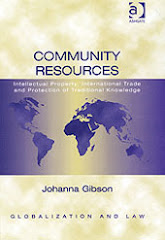
Research and development into agricultural biotechnology (agbiotech) is treated with both support - as an answer to poverty, economic growth, and food security - and suspicion - as a threat to organic and traditional agricultural practices, public health, and symptomatic of policies of denial of information (inadequate labelling, and so on).
However, what is important about a recent publication in AgBioForum, is the analysis of whether or not the technology and knowledge arising from that research and development is genuinely accessible by and deliverable to marginalised farmers and farmers in developing countries.
The authors are all based at the International Food Policy Research Institute (IFPRI), a
 research centre of the Consultative Group on International Agricultural Research (CGIAR) concerned in particular with research into food security and agricultural solutions to economic development. David J Spielman (Addis Ababa, Ethiopia) Joel I Cohen (Science, Technology and Education Associates, Potomac, MD) and Patricia Zambrano (Washington DC) argue that public-private research collaboration will be critical in the effort to ensure that agbiotech research benefits developing countries. Of significance is their analysis of the way in which public institutions are isolated in the particular policy and economic context in which this research takes place. Arguably, increased participation of public research in agbiotech would also enhance public capacity in that research.
research centre of the Consultative Group on International Agricultural Research (CGIAR) concerned in particular with research into food security and agricultural solutions to economic development. David J Spielman (Addis Ababa, Ethiopia) Joel I Cohen (Science, Technology and Education Associates, Potomac, MD) and Patricia Zambrano (Washington DC) argue that public-private research collaboration will be critical in the effort to ensure that agbiotech research benefits developing countries. Of significance is their analysis of the way in which public institutions are isolated in the particular policy and economic context in which this research takes place. Arguably, increased participation of public research in agbiotech would also enhance public capacity in that research.The importance of public collaboration in research was also recognised by the Unio
 n Minister of State for Commerce in India, Jairam Ramesh, in the keynote address at "Agri-biotech Day," Bangalore BIO 2006, earlier this month. Appealing to the industry to "undertake research in the public spirit," Ramesh's comments are of special significance here, highlighting the way in which research cultures can and do benefit from public "investment" in that research - in particular, motivating public interest and a sense of participation.
n Minister of State for Commerce in India, Jairam Ramesh, in the keynote address at "Agri-biotech Day," Bangalore BIO 2006, earlier this month. Appealing to the industry to "undertake research in the public spirit," Ramesh's comments are of special significance here, highlighting the way in which research cultures can and do benefit from public "investment" in that research - in particular, motivating public interest and a sense of participation.



No comments:
Post a Comment